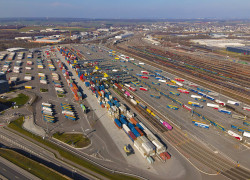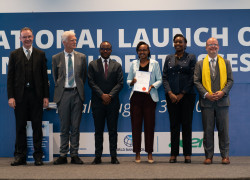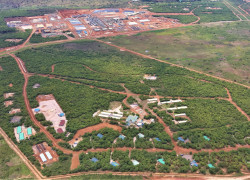PwC Survey Finds Economic Crime Rising Globally, All Business Sectors, Regions Suffer from Impact
Nearly 40% of 5128 respondents say they are victims of fraud, 25% report cybercrimes
Classic asset misappropriation remains a concern, but procurement fraud is on the upswing as discussions and projects with our local clients confirm. Therefore, we have further invested in dedicated tools to assist our clients in tackling such threats with efficient prevention and detection methods
Pierre-Francois Wéry, Forensic Services leader at PwC Luxembourg
Economic crime against businesses and other organisations continues to rise around the world. Some 37% of respondents, a 3% rise since 2011, say they have been victims of economic crime, according to PwC's 2014 Global Economic Crime Survey. And, about 25% say they have been victims of cybercrime, as fraudsters increasingly turn to technology as their main crime tool.
PwC’s global survey, the most extensive on the subject, found that theft remains the most common form of economic crime, reported by 69% of respondents. It is followed by procurement fraud, 29%, bribery and corruption, 27%, cybercrime, 24%, and accounting fraud, 22%.
“Classic asset misappropriation remains a concern, but procurement fraud is on the upswing as discussions and projects with our local clients confirm. Therefore, we have further invested in dedicated tools to assist our clients in tackling such threats with efficient prevention and detection methods” states Pierre-Francois Wéry, Forensic Services leader at PwC Luxembourg.
Vincent Villers, IT Security leader at PwC Luxembourg, adds that "in Luxembourg, collaboration and interconnection between actors is of strategic importance. Whether it is sharing knowledge and best practices to prevent incidents, or sharing information on incidents that occurred, collaboration will be key in adapting digital security measures. Collaboration will help build the necessary trust in the market place. Cybersecurity must be at the top of organisations’ agenda, public and private."
Other reported crimes include human resources fraud, money laundering, intellectual property or data theft, mortgage fraud and tax fraud.
“From a Luxembourg perspective, money laundering and related threats like OFAC sanctions remain of particular interest. This is even more so in an international context of tighter regulations and rising regulatory fines. The expected threat arising from money laundering has significantly increased by 40% compared to 2011. Although Luxembourg is already equipped with a strong regulatory framework to prevent money laundering, we still have to remain vigilant”, highlighted Roxane Haas, AML Leader at PwC Luxembourg.
The exact direct loss associated with economic crime is difficult to assess. Among crime victims, a total of 20% place the financial impact of economic crime on their organisation at more than US$1 million; and 2% of victims – representing 30 organisations -- put the impact at more than US$100 million each.
For the first time this year, the survey measures procurement fraud, reported by nearly 30% of respondents. Procurement fraud is seen as a double threat, victimising businesses both in their acquisition of goods and services and in their efforts to compete for new opportunities.
Respondents also report significant collateral damage in such areas as employee morale, cited by 31%, and in corporate reputation and business relationships, both reported by 17%. Despite the financial and collateral effects of crime, just 3% of respondents said incidents of fraud have impacted their company’s share price.
“Like a stubborn virus, economic crime persists despite ongoing efforts to combat it. No organisation of any size anywhere in the world is immune to the impact of fraud and other crimes,” said Steven Skalak, PwC Forensic Services partner and lead editor of the survey. “Those committing economic crime succeed by adapting to shifting global conditions like reliance on technology and the expansion of emerging economies.”
“Even worse than the direct financial impact of economic crime is its threat to a wide range of business systems that are the lifeblood of corporate operations. Economic crime damages internal processes, erodes the integrity of employees and tarnishes reputation,” he added.
Where Does Economic Crime Occur?
Economic crime is a pervasive, global threat. Regionally, economic crime is most prevalent in Africa, where 50% of respondents say they have been victims, though down from 59% in 2011. It is followed by North America, 41%, Eastern Europe, 39%, Latin America and Western Europe, each 35%, Asia Pacific, 32%, and the Middle East, 21%.
Respondents from 65 countries and territories reported that they have experienced economic crime. South African respondents report the highest level, 69%, up from 60% in 2011. Crime is also growing rapidly in the Ukraine, 63% up from 36% three years ago, Russia, 60% vs. 37% in 2011, and Australia, 57% vs. 47% in 2011.
The survey identified eight emerging economies – Brazil, Russia, India, China, South Africa, Turkey, Mexico and Indonesia – where 40% of total respondents said they have experienced economic crime, reflecting in part a shift in wealth to those countries.
“The Luxembourg Asset Management industry should pay close attention to emerging markets since global fund distribution is increasingly targeting them. Luxembourg investment funds must ensure that each distributor they work with, regardless of the country the latter operates from, complies with Luxembourg or EU (Directive EC 2005/60/EC) equivalent AML/CTF obligations. Ultimate responsibility for the appropriate implementation of investor identification and other AML/CTF due diligence measures lies with the fund managers. The CSSF Regulation 12-02 and related regulations for Management Companies of Investment Funds have reinforced this approach”, said Birgit Goldak, Distributor Due Diligence Leader, PwC Luxembourg.
Which Industries are Most Affected?
By industry, economic crime is most common in the financial services, retail and consumer and communications sectors. Nearly 50% of respondents in each said they have been crime victims. Financial services organisations are victims of high levels of cybercrime and money laundering, while retail and consumer and communications companies have suffered most from theft. Hospitality and leisure, and government, both 41%, also report high crime levels.
Who commits fraud?
Typically economic crime is committed when three conditions are present: life pressure, opportunity and personal rationalisation for the crime. According to the survey, 56% of economic crime is committed by someone inside the company, while 40% is external. There are wide variances by industry, however. In financial services, for example, nearly 60% of crime comes from outside the company, while 36% is internal.
Globally, a fifth of economic crime is committed by those in senior management, 42% by middle managers and 34% by junior staff.
The profile of the typical fraudster is middle-aged males with a college degree or higher level of education who have been with their organization for a substantial period. Globally, almost half of all frauds are committed by employees with six or more years of experience and almost a third are committed by employees with three to five years of experience.
How is Fraud Found?
The survey found that 55% of economic crime is discovered through corporate controls such as reporting of suspicious transactions, internal audit, or fraud risk management. Whistle-blowing systems or tips offs uncover about a quarter of reported crimes, and about one-fifth is uncovered by other means such as law enforcement, the media, or by accident.
The survey finds that respondents expect economic crime will continue to increase in the future among nearly all categories. This result was also found in PwC’s 17th Annual CEO Survey. CEOs globally also recognise the impact of economic crime; 50% said ‘lack of trust’ was a key issue in the marketplace, a sharp increase from 37% a year ago. Bribery and corruption also are ranked among CEOs’ top concerns.
More comprehensive results and an overview of the Luxembourg situation will be presented on 28 March.
To download a copy of 2014 Global Economic Crime Survey, please visit PwC Luxembourg’s website
Communiqués liés
RSA launches technology and management liability insurance s...
RSA Luxembourg, part of Intact Insurance Specialty Solutions, today announces th...
Lancement d'une nouvelle connexion intermodale entre Bettemb...
CFL multimodal a le plaisir d'annoncer le lancement de sa nouvelle connexion i...
Experts from LUNEX award first micro-credentials in Rwanda o...
The Rwanda Ministry of Education (MINEDUC) formally inaugurated Syllabi, a publi...
ERG Notes that ENRC Secures Landmark Victory as Court of App...
Eurasian Resources Group (ERG), a leading diversified natural resources group he...
LetzToken et La Vie est Belle annoncent leur partenariat ouv...
«?LetzToken?», plateforme de tokenisation pionnière basée à Luxembourg, et ...
ERG announces a Pre-Export Finance Facility Agreement based ...
Eurasian Resources Group (“ERG”, “The Group”), a leading diversified nat...
Il n'y a aucun résultat pour votre recherche







